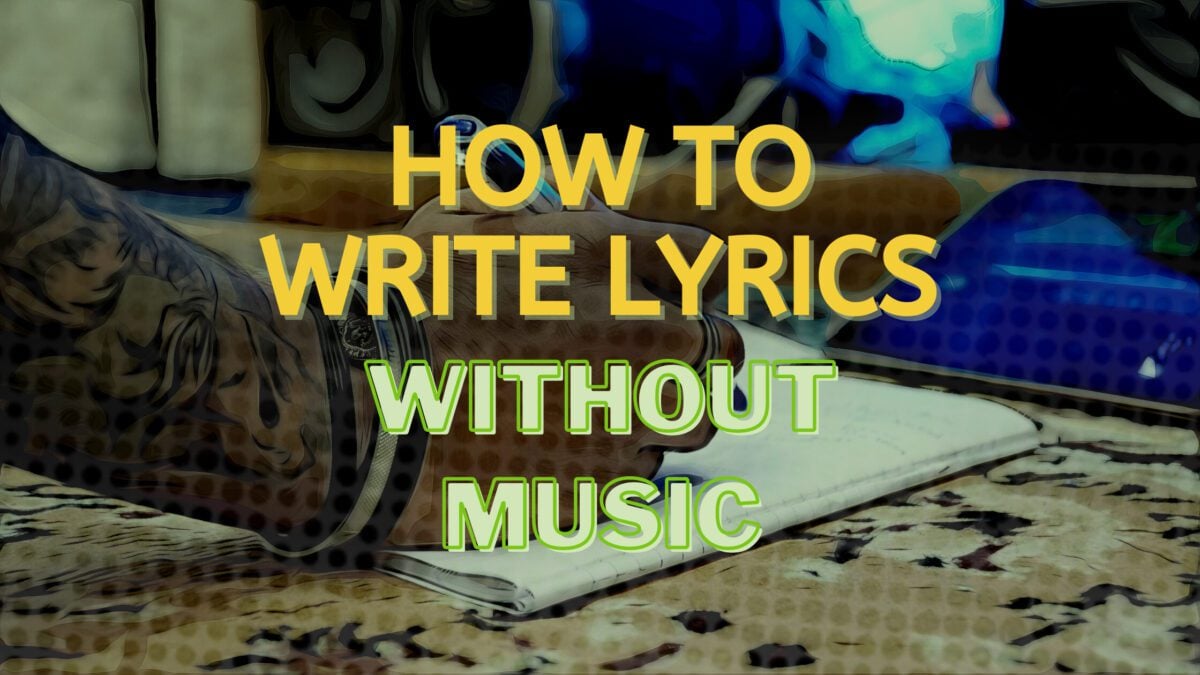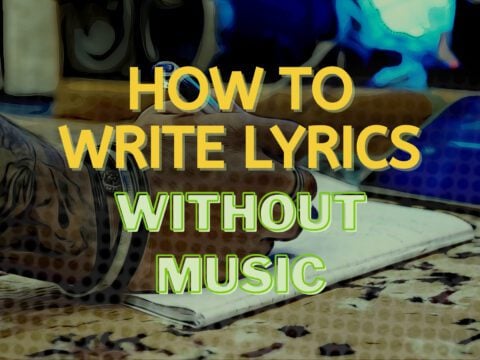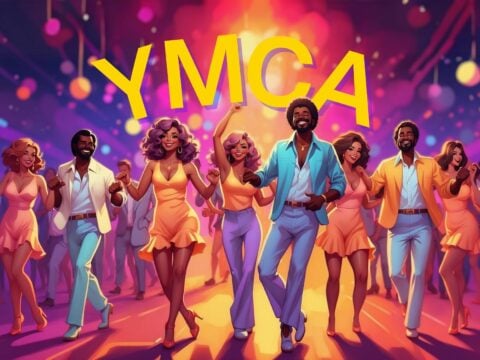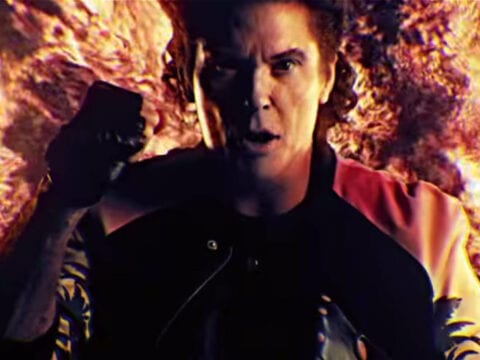
If you’re a songwriter, you’ve probably been asked, “How do you write lyrics without music?” It’s a good question, and it’s one that many musicians ask themselves at some point.
- How to Write Lyrics without Music?
- 1. Brainstorm Ideas and Concepts
- 2. Understand Your Song Topic and Audience
- 3. Find Inspiration in The World Around You
- 4. Read Widely to Increase Your Vocabulary
- 5. Understanding the Song Structure
- 6. Record Your Lyrics with Only Vocals
- 7. Simplify Your Melody So You Can Focus on Writing Lyrics
- 8. Use Songwriting Techniques to Perfect Your Lyrics
- 9. Build a Rhyming Dictionary by Hand
- 10. Seek Feedback from Other Musicians, Lyricists, or even Friends
- 11. Have Fun Writing Song Lyrics without Music!
- Conclusion
So what do you do when you want to write lyrics and don’t have any music to help you out? Don’t worry, we’re here to help! In this blog post, we’ll explore how to write lyrics without music by looking at 11 pieces of advice to help you write song lyrics better without music. By the end, you’ll be ready to write your next hit single!
Is It Possible to Write Lyrics Without Music?
Yes, it is possible to write lyrics without music. For most songwriters, beginning with music to guide them is the simplest way to start.
However, some writers also choose to begin by writing lyrics and then finding an instrumental that complements their words. Regardless of your approach, having a musical foundation can play an essential role in helping bring your artistic vision to life.
Likewise, this might be difficult for you if you don’t have a musical background and haven’t written lyrics before.
Is It Better to Write Lyrics Without Music?
There’s no right or wrong answer to this question. Some songwriters prefer to work with music, while others don’t. One benefit of writing lyrics without music is that you can focus on the lyrics themselves. With less destruction, you can concentrate on the story that you want to tell through your song.
How to Write Lyrics without Music?
Writing good song lyrics without music does require a different approach than writing with music. For some people, it can feel like an arduous task. After all, writing song lyrics is one of the most difficult parts of creating a song. Now here are the 11 tips for writing lyrics without music.
1. Brainstorm Ideas and Concepts

Now it’s time to get your song ideas down on paper. Don’t worry about making them perfect or structured at this point. Just get them out there. Capture the sparks of inspiration by always having a notebook, notepad, or smartphone nearby when writing song lyrics. Don’t let these brilliant lyrical ideas slip away, Jot them down so you can refer back to them later!
Things to Take Note of While Brainstorming
Now that you prepared, start by brainstorming ideas and concepts that you want to write about in your lyrics. What’s been on your mind lately? What are you feeling? What topics do you want to explore? Jot down any and everything that comes to mind, and then start sorting through them later. You might find that certain themes or ideas keep popping up, and that can be a great starting place for your lyrics.
Get Specific About Your Theme or Idea
You could also begin with a general theme or idea, and then break it down into specifics. For example, start with a broad concept such as “love” and then break it down into topics like how it feels to be in love, how it changes over time, and how it can bring joy and sorrow.
2. Understand Your Song Topic and Audience

Your lyrics are your sole vehicle for conveying emotions, so it’s important to really understand the topic before you start writing.
Are you writing lyrics inspired by a personal experience? Ponder how your song can reflect the story on an even deeper level. Consider what kind of emotion you want to bring out and which words will best portray that feeling.
It would be best if you also considered the broader context of your song. Who are you speaking to, and why? What questions do they need answers to? Asking yourself these questions will help guide your lyrics in the right direction and ensure that they’re both meaningful and impactful.
3. Find Inspiration in The World Around You

When writing song lyrics without music, drawing inspiration from the world around you is important. We all have experiences that shape our lives. These can be happy, sad, inspiring, or humbling— but they are what make a songwriter’s work unique and personal at the same time.
Inspiration from Your Natural Surroundings
Step out of the ordinary and wander around your natural surroundings. Listening to the environment can inspire ideas for songwriting, with conversations you hear becoming lyrics or even colors in a sunset providing images to write about. Soak up what nature has to offer and let it stimulate creative ideas!
Inspiration in The Works of Others
Unearth creative inspiration in the works of others! From abstract paintings to vintage photographs, you can translate their feelings and atmosphere into your own words by putting a unique twist on them. Even if your final product isn’t exactly the same as what inspired you, its essence will remain.
At the end of the day, whatever your source of inspiration is, write about what speaks to you. Writing something that resonates with people isn’t just about having clever wordplay, it’s also about being honest and vulnerable with yourself so that others can relate to your story too.
4. Read Widely to Increase Your Vocabulary

If you want to write music lyrics that are interesting and have depth, then having a large vocabulary to choose from is key. Reading widely is a great way to gain new words and phrases that you can use to make your lyrics stand out.
To increase your lyrical prowess, when you come across a word that stumps you, make sure to jot it down in a notebook and look up its meaning. This strategy will help clarify the term for yourself and ensure that you use it correctly when crafting your song lyrics.
Additionally, reading books written by different authors can help increase your knowledge of how language is used. You’ll be exposed to different lyric writing styles, which will broaden your understanding of creating imagery with words, which is essential when crafting thoughtful song lyrics.
Now that you are almost ready to start writing, it is an appropriate time to think about the song structure.
5. Understanding the Song Structure

A fundamental yet critical aspect of songwriting is mastering the song structure. Understanding how a composition should be constructed lays a strong foundation for crafting an effective, memorable tune. This means understanding how long your songs should be, the number of verses and choruses typically used in each composition, and so on. Knowing these details when writing can help ensure that all elements come together perfectly.
Song Elements
Melody, meter, and momentum are also essential elements of the structure of a song. These are known as musical elements. A typical pop song is usually about 2 to 4 minutes long and has 3 or 4 verses and 1 or 2 choruses. Furthermore, some songs may contain a bridge, interlude, or outro.
The Rhythm of a Song
The rhythm of a song can be free-form or specific to a genre or style. Songs with a highly structured rhythm tend to have a consistent beat throughout. For example, dance music. On the other hand, songs with a free-form rhythm usually have a mixture of faster and slower sections throughout. It is essential to understand that the speed and intensity of a song often dictate the emotion of the lyrics and the melody of the song.
Song Tempo
For instance, a slow tempo often expresses a melancholic emotion, while a fast tempo can be used to give energy and enthusiasm to the song. Meanwhile, the melody should be used to provide contrast to the rhythm. To give the listener an interesting and varied experience, the songwriter should use the melody to create different melodies in different song sections.
Through tempo, the songwriter can craft a range of emotions in their work. A slow beat may emphasize sadness or longing, while quicker tempos enthusiasm and add energy. The melody can be used to bring contrast against the rhythm – offering an engaging experience through different melodic lines throughout various parts of the composition. By carefully constructing these elements, any musician has all they need for powerful storytelling through music!
In the case of a chorus, the melody and lyrics should be catchy and easy to remember. By understanding the structure of a song and the various elements involved, you will depend less on the need for music to guide you.
6. Record Your Lyrics with Only Vocals

If you’re penning song lyrics without music to accompany them, recording your words with just vocals can be beneficial. This helps you hear your lyrics differently and gives you a better sense of the flow and internal rhymes of your lyrics.
You won’t need anything elaborate – simply an audio recorder that can do its job! It could be as simple as a voice memo app on your phone or any other digital recording device.
Try recording yourself saying your lyrics out loud, and try varying your delivery until it feels right. The more you practice, the easier it will be to create songs without relying on music.
7. Simplify Your Melody So You Can Focus on Writing Lyrics

Once you have the basic idea of your song down, start by simplifying the melody before you begin writing your lyrics. This will help you focus on how to best express the lyrics without getting caught up in melodic ideas and how to fit your lyrics into a complex melody.
Use a Simple Rhythm or Beat
Start by finding a simple rhythm or beat to use as the basis for your song. You don’t need anything too complicated, just something to help you keep a steady tempo as you work. Drum tracks are great places to find ideas for a rhythm or beat.
Hum or Sing the Melody
Experimenting with sound can be a creative process, so why not start by humming or singing until you find something that resonates? Play around with different tempos and note combinations to form the basis of your melody. Afterward, use it as your guide and let the words flow naturally!
Simplifying your musical motifs makes it easier to keep your thoughts structured while simultaneously giving you the creative headspace to venture into unknown regions without getting overwhelmed by cumbersome details. Keep it simple – focus on creating basic chords, repeating lines, and developing transitions between verses and choruses. That way, when it comes time to add music later on, the process will be that much easier.
8. Use Songwriting Techniques to Perfect Your Lyrics

Now that you’re familiar with the basics of writing song lyrics without music, let’s dive into some more advanced songwriting techniques. Unlocking the perfect writing flow and maximizing your words’ power is achievable by utilizing songwriting techniques. These tried-and-true methods have been used for years by successful musicians, so why not make them work for you too? Embrace these skills to enhance your writing!
Rhyme Schemes
One technique is “rhyme schemes” – this is where you map out the rhymes in a certain pattern on your page (usually A-B-A-B or A-A-B-B). This visual reminder helps you make sure that the rhyme scheme is consistent across the entire song and flows naturally from one couplet to the next.
Wordplay
Another technique is “wordplay” – this is where you try to come up with clever puns and metaphors, or even use rhetorical devices like antithesis and repetition, to truly bring your words to life. Wordplay can be humorous, thought-provoking, or both, depending on what mood you’re trying to evoke in your song.
9. Build a Rhyming Dictionary by Hand

Creating a rhyming dictionary from scratch is one of the most important steps in writing song lyrics without music. Sure, you can find rhyming dictionaries online, but nothing beats writing one yourself. Why? Because it gives you a greater understanding of how words and syllables interact, and it also helps to keep the flow of your lyrics consistent.
Start off by writing down all of the words that could potentially be used to finish a phrase or verse. Don’t be afraid to get creative and think outside the box with rhyming words. Add homophones, close rhymes, and alternative spellings. All of these elements can help give your lyrics more depth and character.
Next, look up each word in a trusty rhyming dictionary and start adding as many words as you can think of that will fit into the context and would make for catchy lyrics.
In no time, you’ll be a master lyrist!
10. Seek Feedback from Other Musicians, Lyricists, or even Friends

Before submitting your work for publishing or performance, it is better to gain feedback from fellow musicians and lyricists with constructive critiques. This will help enhance your creation before releasing it out into the world.
Both friends and loved ones can offer invaluable feedback, allowing you to identify potential missteps while providing helpful guidance.
Having an extra pair of eyes can often highlight words and phrases you may have overlooked and can offer valuable insight!
11. Have Fun Writing Song Lyrics without Music!

Finally, don’t forget to enjoy the process! Writing song lyrics without music can be surprisingly fulfilling, especially when you finally see how it all comes together in the end.
Listen to your favorite songs, find inspiration, and get creative. Take your time when writing; don’t rush it! The more you work on it and refine it, the better the outcome will be. Experiment with different words and phrases but don’t be afraid to break the rules. Remember, writing lyrics is a form of art; you can craft the story however you want.
Most importantly, have fun with it! Writing lyrics without music can be a challenge, but it can also be incredibly rewarding. Learn from the greats and take time to explore your creativity. Allow yourself to be inspired, and don’t let others discourage you from pursuing your dreams.
Writing songs is an enjoyable creative outlet that should be enjoyed rather than taken too seriously – so don’t forget to have fun with it!
Conclusion
The truth is, there’s no one way to write lyrics. Some people prefer to start with the music, while others prefer to have the lyrics down before they start tinkering with instrumentals. Some people like to work in solitude, while others enjoy brainstorming with a group.
If these 11 pieces of advice are not enough for you, then take a look at our other article with 50 songwriting tips for professional songwriters.
No matter your approach, it’s important to be flexible and willing to experiment. What matters most is that you continue writing and never give up on your goals and aspirations. So go forth with confidence, get creative, and start writing!
The world is waiting to hear what you have to say.





